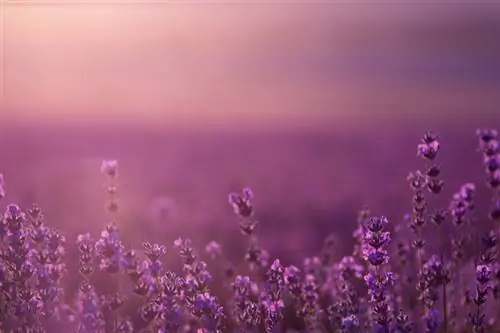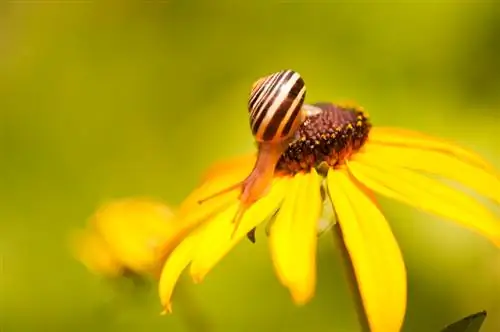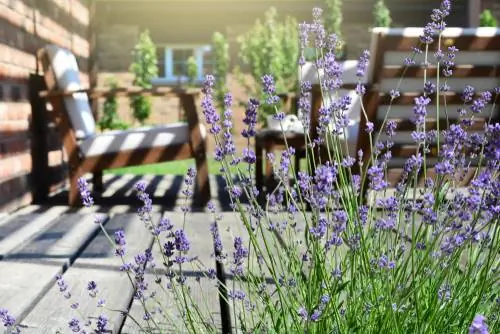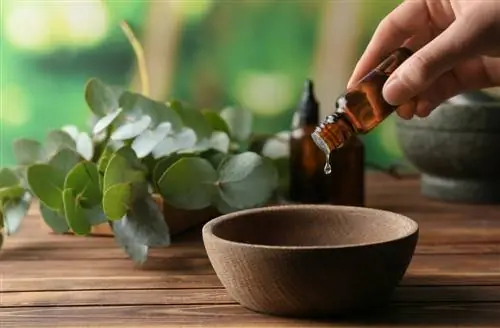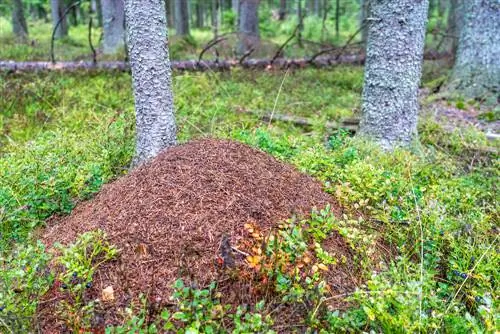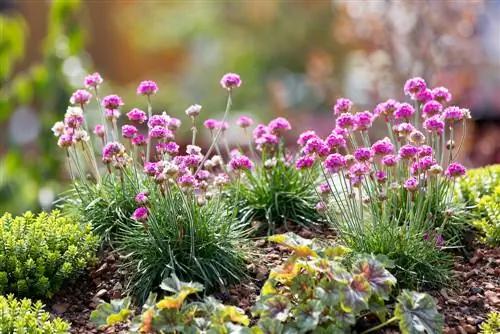- Author admin leonars@hobbygardeners.com.
- Public 2023-12-16 16:46.
- Last modified 2025-01-23 11:20.
Aphids can ruin the most beautiful plants in a very short time. The annoying little animals not only drain the lifeblood of the plants, but also produce a sweet dew that attracts ants. These in turn destroy the root system by forming tunnels and cause the infected plant to die. So if an increase in ants suddenly appears, you should definitely check your plants for aphids.
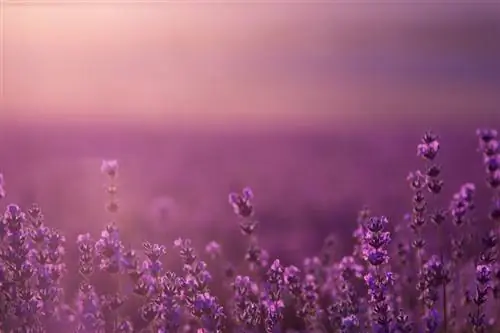
How does lavender help against aphids?
Lavender helps against aphids by planting it as a plant protection or using it as a lavender infusion. Strongly scented types of lavender, such as lavender, keep the pests away, while lavender infusion treats infected plants directly.
Planting lavender as plant protection
Lavender can be used as plant protection. However, aphids do not attack every plant species equally. In particular, species that produce a lot of intensely scented essential oils are avoided by the pest. The little animals especially dislike lavender, although this statement does not apply to every type of lavender. Less intensely scented lavender - such as Lavandin - can certainly be attacked by aphids, as can plants that only develop a few essential oils due to inadequate site conditions and care. Strongly scented lavender, on the other hand - especially lavender - is ideal for planting as a protective bastion against predatory insects. It is best to plant the plants in the bed as a dense hedge or as ground cover, but take into account the different needs of the respective plant species. Lavender, a drought-loving plant, doesn't get along well with every neighbor.
Lavender infusion as a remedy against aphids
If aphids have already appeared, they can often be combated by intensive treatment with a lavender infusion. To do this, pour two generous handfuls of dried lavender flowers into a liter of boiling water and let the mixture steep for a few hours. Then strain the flowers and spray the affected plants with the broth. You should repeat the treatment several times until the last aphid has disappeared. The lavender broth can also be used as irrigation water. In this case, the active ingredients of lavender are absorbed by the roots and transported into the leaf veins, where the aphids suck them up. Instead of dried lavender flowers, you can also use a few drops of concentrated lavender oil - preferably wild lavender, as this is where the active ingredient concentration is highest.
Tips & Tricks
Mulch endangered or infected plants - such as roses - with dead and dried lavender stems. With a little luck, the lavender will even sow itself and you can plant new young plants in spring.

